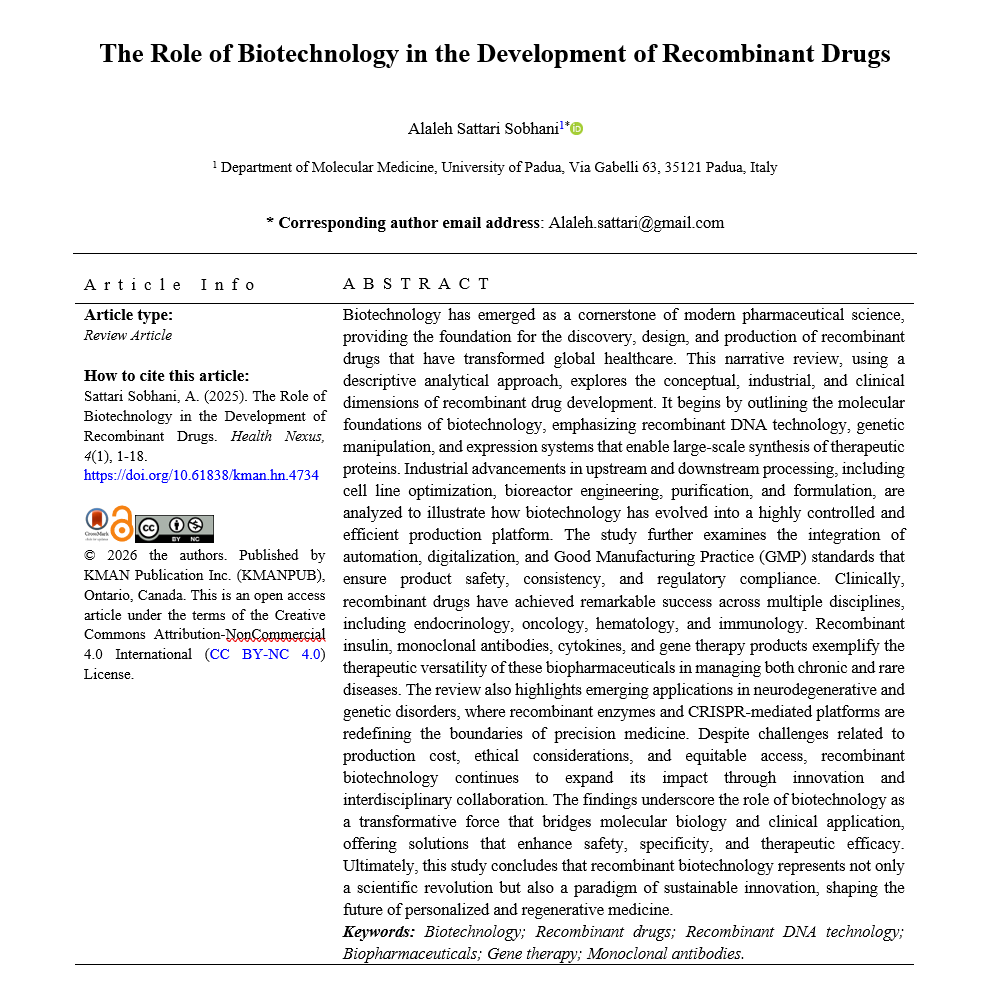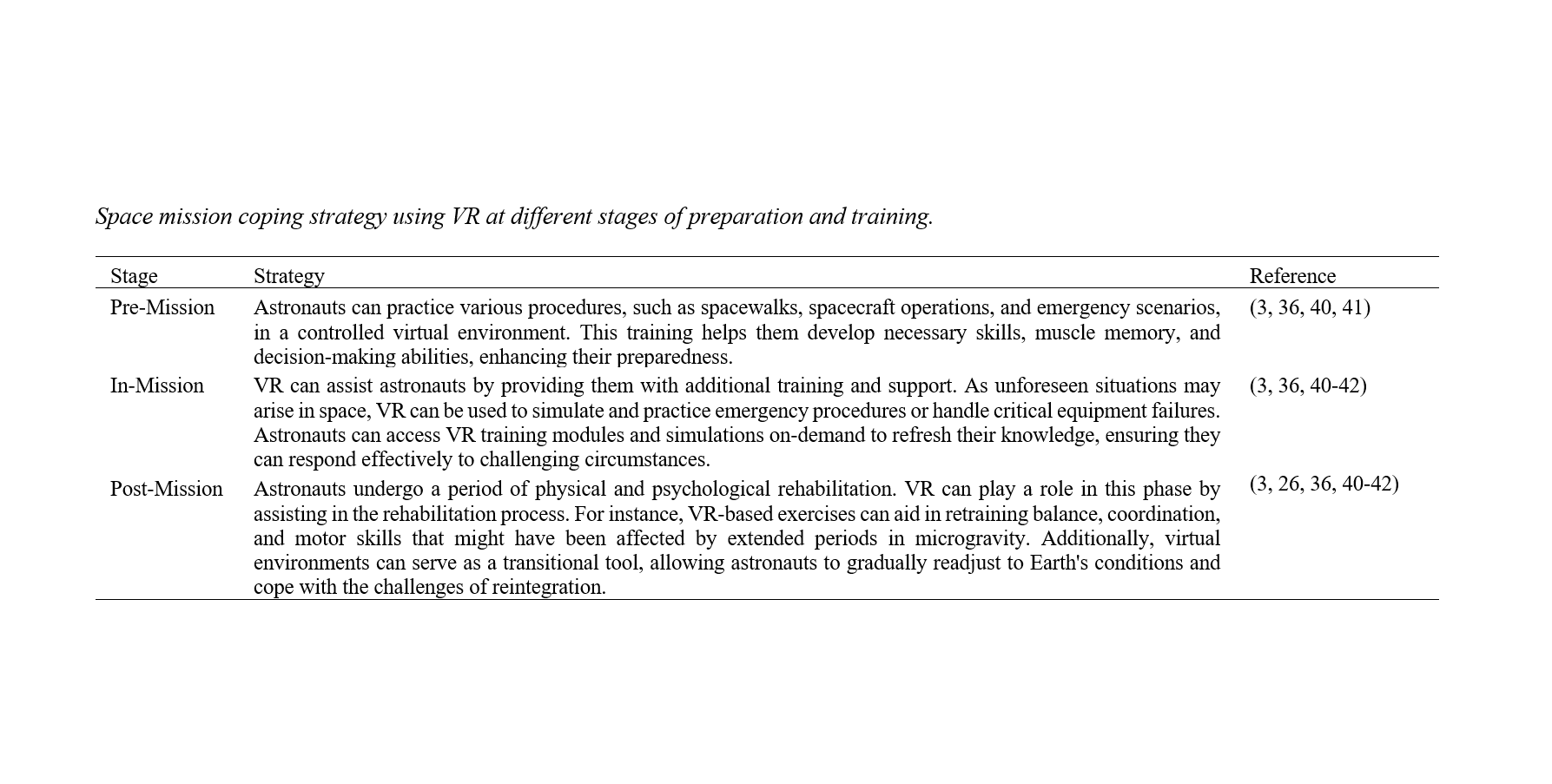Emerging Technologies in Health
This section accepts manuscripts in the following fields:
4) Emerging Technologies in Health
In Sports Sciences
-
Objectives:
- To enhance athletic performance through data-driven insights and training optimizations.
- To develop technology-based injury prevention and rehabilitation programs.
- To utilize emerging technologies for talent identification and performance prediction in athletes.
- To improve the understanding of sports biomechanics and physiology using advanced analytics.
- To explore the potential ethical concerns and fairness issues associated with emerging technologies in sports.
- To assess the risks of data privacy breaches and security in sports technology applications.
-
Focus:
- Implementing machine learning algorithms for analyzing athletes' performance data.
- Developing predictive models for injury risks based on athletes' physical data and training loads.
- Integrating wearable technology and advanced analytics to monitor athletes' health and fitness levels.
- Examining the ethical dilemmas of technology in sports, such as biases in talent identification.
- Investigating the impact of technology on coaching decisions and athlete autonomy.
- Evaluating the security vulnerabilities of technology systems used in sports data analysis.
-
Scope:
- Empirical research on the efficacy of technology-driven training programs in improving sports performance.
- Studies on the accuracy and effectiveness of technology in predicting and preventing sports injuries.
- Research on the ethical implications of using technology for talent scouting and performance enhancement.
- Cross-disciplinary studies combining sports science with technology, data analytics, and biomechanics.
- Studies on the mental health implications for athletes in technology-intensive training environments.
- Research on fairness and bias in technology algorithms used for scouting and evaluating athletes.
- Analysis of the impact of technology on traditional coaching roles and athlete-coach dynamics.
- Investigations into the data privacy concerns surrounding the use of technology and gadgets in sports.
In Psychology
-
Objectives:
- To understand the psychological impact of technology and digital device overuse.
- To assess the implications of technology-driven social media on mental health.
- To explore how technology in mental health services affects patient privacy and trust.
- To investigate the consequences of technology-induced biases in psychological assessments and treatments.
- To enhance the accuracy and efficiency of mental health diagnoses using advanced technology.
- To develop technology-powered tools for personalized mental health treatment and therapy.
- To utilize technology in understanding and simulating human cognitive processes.
- To investigate the effectiveness of technology-assisted interventions in various psychological conditions.
-
Focus:
- Examining the relationship between technology interaction and social skill development, particularly in children and adolescents.
- Analyzing the links between technology, social media use, and mental health disorders like anxiety and depression.
- Evaluating the ethical considerations in using technology for mental health monitoring and interventions.
- Investigating how algorithmic biases in technology systems impact mental health care and treatment outcomes.
- Implementing machine learning for early detection of mental health issues.
- Developing and testing technology-driven chatbots and virtual therapists for psychological support.
- Analyzing large-scale data to uncover patterns and insights in psychological disorders.
- Integrating technology in cognitive-behavioral therapies and other psychological treatment modalities.
-
Scope:
- Longitudinal studies on the effects of technology and AI on social and emotional development.
- Cross-sectional and epidemiological studies correlating technology usage with mental health outcomes.
- Qualitative and quantitative analyses of patient attitudes towards technology in mental healthcare.
- Research on the representation and inclusivity of diverse populations in technology-driven psychological tools.
- Clinical trials testing the efficacy of technology tools in diagnosing and treating mental illnesses.
- Studies on the user experience and acceptance of technology-based psychological support systems.
- Research on the ethical implications and privacy concerns of using technology in mental health care.
- Cross-disciplinary studies combining technology with neuroscience, psychology, and psychiatry.
In Public Health
-
Objectives:
- To assess how technology advancements impact healthcare access and equity.
- To evaluate the accuracy and reliability of technology in medical diagnostics and the consequences of overreliance.
- To understand the socioeconomic impact of technology automation on healthcare employment.
- To identify and mitigate cybersecurity threats in healthcare technology systems.
- To improve public health surveillance and disease tracking through advanced technology.
- To optimize healthcare resource allocation and management using technology algorithms.
- To enhance the accuracy of epidemiological modeling and disease prediction.
- To leverage technology for personalized public health interventions and education.
-
Focus:
- Investigating the disparities in healthcare outcomes related to technology access.
- Analyzing the accuracy of technology diagnostic tools across diverse patient populations.
- Examining the economic and psychological impacts of technology-related job displacements in healthcare.
- Exploring the ethical dilemmas posed by technology in public health decision-making.
- Utilizing technology for real-time monitoring and analysis of public health data.
- Developing predictive models for disease outbreaks and public health emergencies.
- Implementing technology-driven strategies for efficient healthcare delivery and vaccination campaigns.
- Analyzing social determinants of health through technology to inform public health policies.
-
Scope:
- Comparative studies on healthcare quality between technology-equipped and non-equipped regions or populations.
- Systematic reviews of technology diagnostic tools' performance in clinical settings.
- Socioeconomic research on the broader impacts of technology integration in healthcare sectors.
- Policy and ethical analyses on the use of technology in public health strategies and decision-making processes.
- Empirical studies on the impact of technology applications in managing public health crises.
- Research on technology's role in reducing health disparities and improving healthcare accessibility.
- Evaluations of technology-driven public health campaigns and their effectiveness.
- Policy-oriented research on integrating technology into public health strategies and frameworks.
Make a new submission to the Emerging Technologies in Health section.













